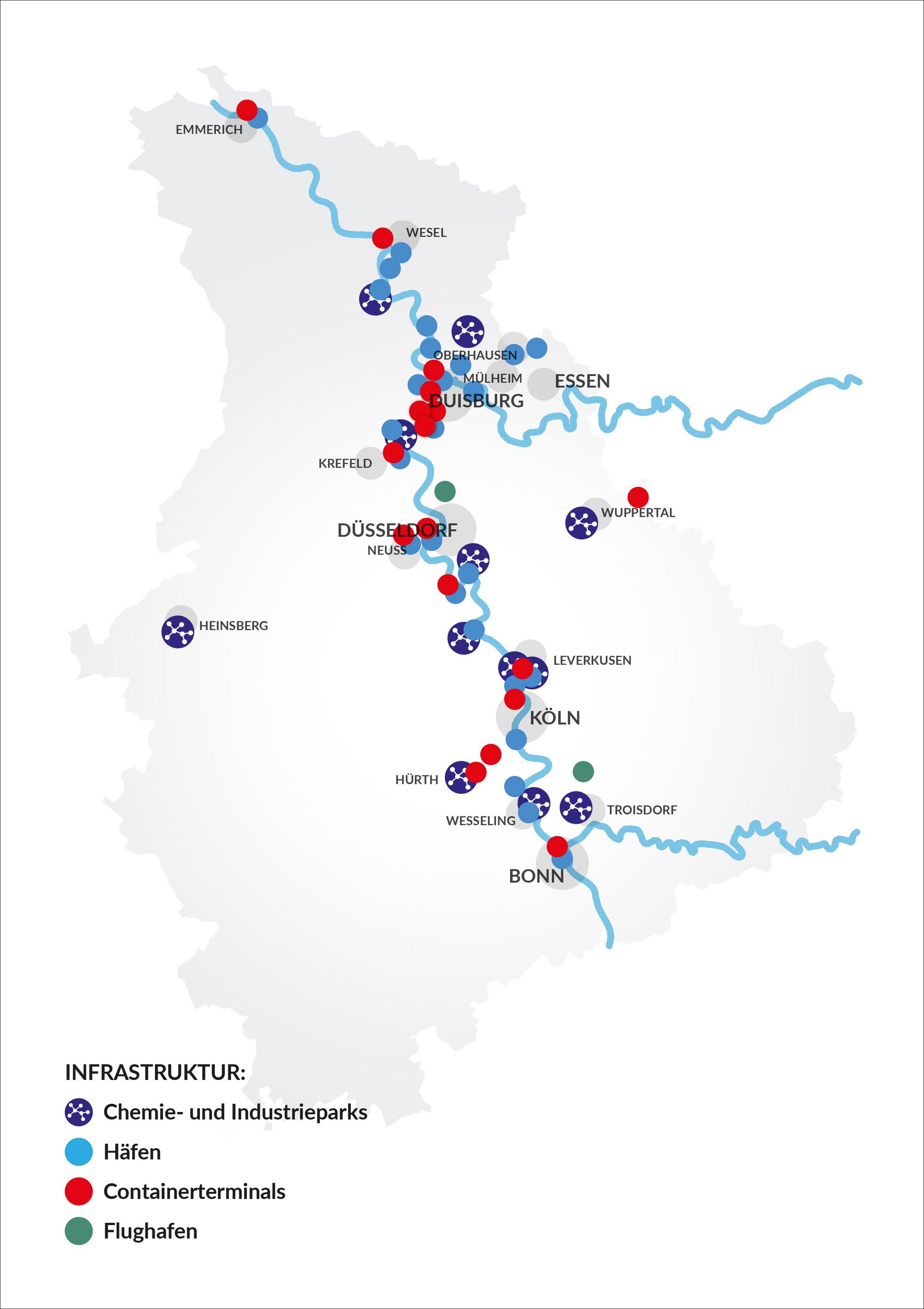![[Translate to English:] [Translate to English:]](/fileadmin/_processed_/2/a/csm_Hinterleger_Investitionen_Infrastruktur_7ff81752c2.jpg)
The perfect location for your infrastructure and logistics needs
The ChemCologne region is centrally located in the economic heartland of the European Union, with more than 60 million people living within a radius of 250km. A large number of processing companies from across nearly all sectors are based here, forming an important market for the chemical industry in the greater Cologne area.
High-class logistics infrastructure
The Rhineland chemical region is situated at the intersection of international transport routes. With its dense transport network and superb access to rail, road, water and air links, it is one of Europe’s leading logistics hubs. Numerous motorways branch off in every direction, enabling goods to be transported quickly by road.
Being so close to the River Rhine, Europe’s most important waterway, the region has excellent links to the two largest seaports in Europe: Rotterdam and Antwerp. Within the region, the Rhine boasts a number of modern port facilities. It is also home to Europe’s largest inland port, in Duisburg, and to RheinCargo, which operates the second largest inland port, with river ports in Neuss, Düsseldorf and Cologne, and one of the biggest freight rail networks in Germany.
As environmental awareness increases, the combined use of different modes of transport is a key factor in today’s transport systems. Chemical products can be transferred quickly between the different systems thanks to multimodal freight-handling facilities.
The region also has two major air transport hubs – Cologne/Bonn International Airport (Germany’s third largest freight airport) and Düsseldorf International Airport. And the biggest German passenger and freight airport, Frankfurt International, is less than an hour away from Cologne on the high-speed ICE train.
Among the region’s standout features are its access to an international pipeline system and its unique pipeline network between the various sites. More than 50% of the feedstock, industrial gases and commodities needed by the businesses are transported in an environmentally friendly, economical manner through pipelines.
Unlike other transport systems, the pipeline network is exclusively open to the sites and businesses connected to it and is maintained by the local operating company. Within the extensive network, the links to the ZARA* ports (ethylene via Antwerp and the Belgian chemical industry, crude oil and mineral oil products via Rotterdam) and the North Sea ports of Hamburg and Wilhelmshaven (crude oil) are particularly important. They are mainly used for imports to the Rhineland region although ethylene is also exported south to Bavaria via Frankfurt-Höchst and Ludwigshafen.
Lots of specialised chemical logistics providers have set up in the region. They ensure all chemical products are transported properly and in accordance with high quality and safety standards.
*ZARA ports: Zeebrugge (Belgium), Antwerp (Belgium), Rotterdam (Netherlands) and Amsterdam (Netherlands)

